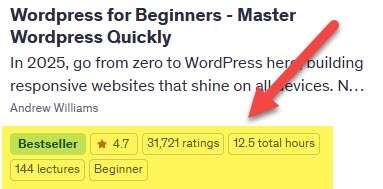Mastering prompt refinement releases AI's full potential through systematic iteration and optimization. Research shows organizations achieve 40% higher engagement using refined prompts versus static approaches. Strategic frameworks combine specific details with creative flexibility, allowing for methodical adjustments based on output analysis. Successful implementation requires balancing precision with adaptability while testing variable combinations. The journey from basic prompts to sophisticated AI interactions reveals increasingly powerful capabilities worth exploring.
Key Takeaways
- Systematic prompt iteration transforms basic AI responses into sophisticated outputs by building upon successful elements and patterns.
- Clear prompt structure with specific details enables better control while maintaining creative flexibility in AI-generated content.
- Data-driven analysis of results guides targeted modifications, leading to consistently improved outputs and reduced error rates.
- Strategic testing of different prompt formats helps identify optimal combinations for achieving desired AI responses.
- Methodical refinement through layered specificity and experimentation unlocks advanced AI capabilities beyond basic functionality.
Understanding the Power of Prompt Iteration
Increasingly, the success of AI-generated content hinges on mastering prompt iteration – a systematic process of refining input commands to achieve ideal outputs. This iterative approach allows users to explore the full spectrum of AI capabilities while maintaining creative control.
Through prompt flexibility, creators can fine-tune their requests, leading to increasingly sophisticated and nuanced results. Each iteration builds upon previous attempts, identifying successful elements while eliminating ineffective components.
This methodical refinement process transforms basic prompts into precise instructions that reveal AI's deeper potential, enabling users to break free from conventional limitations and achieve breakthrough results.
Key Strategies for Effective Prompt Engineering
Building upon the foundations of prompt iteration, successful prompt engineering requires a structured framework of proven strategies and techniques.
Effective implementation begins with establishing clear prompt structure, incorporating specific details while maintaining flexibility for creative variations.
Key approaches include systematically testing different prompt formats, analyzing output patterns, and refining based on results.
Engineers must balance precision with adaptability, allowing AI systems to generate innovative solutions while staying within defined parameters.
This methodical framework empowers users to access AI's full potential through strategic prompt design, enabling more accurate and impactful content generation across diverse applications.
Real-World Examples of Prompt Refinement Success
Through systematic analysis of real-world applications, prompt refinement has demonstrated measurable success across multiple industries and use cases.
Success stories range from marketing teams achieving 40% higher engagement through iteratively refined ad copy to artists discovering creative breakthroughs in digital art generation.
Research institutions have documented significant improvements in AI-generated scientific hypotheses after implementing structured prompt iteration protocols.
These refinements have led to more nuanced outputs, reduced error rates, and enhanced innovation potential.
The evidence consistently shows that organizations embracing systematic prompt refinement achieve superior results compared to those using static, unrefined prompts.
Best Practices for Maximizing AI Output Quality
Several key best practices have emerged from extensive analysis of AI output enhancement techniques. Successful outcomes depend heavily on prompt clarity and systematic refinement through iterative testing.
Users achieve ideal results by starting with specific, well-defined prompts and methodically adjusting based on initial outputs. The process requires maintaining precise control while exploring creative possibilities.
Effective practitioners analyze results objectively, identify areas for improvement, and implement targeted modifications. This data-driven approach enables users to break free from traditional constraints while maximizing the AI's capabilities through strategic prompt engineering and systematic enhancement.
Advanced Techniques for Prompt Optimization
While fundamental prompt techniques form a baseline, advanced optimization methods reveal significantly higher levels of AI performance. Through iterative experimentation, users discover that layering specific details progressively yields superior results.
Creative specificity emerges as a critical factor, where each refinement step introduces nuanced elements that shape the AI's understanding and output.
Advanced practitioners leverage systematic testing of variable combinations, analyzing how different prompt elements interact. This methodical approach opens up deeper AI capabilities, enabling users to transcend basic results and achieve sophisticated, precisely-tailored outputs that align with their creative vision and practical requirements.
Frequently Asked Questions
How Long Should I Spend Refining a Single Prompt Before Moving On?
The ideal duration for refining a single prompt typically ranges from 15-30 minutes. An iterative approach should continue until marginal improvements diminish or specific objectives are achieved.
Can Prompt Refinement Techniques From One AI Tool Transfer to Another?
Like skilled sailors maneuvering different seas, prompt refinement techniques demonstrate high tool compatibility. Core principles of prompt adaptability transfer effectively between AI platforms, though specific adjustments may be necessary.
What's the Average Number of Iterations Needed for Optimal Results?
Iteration analysis suggests 3-5 refinements typically achieve ideal results, though specific requirements vary. Advanced optimization strategies may require additional cycles depending on complexity and desired outcome precision.
Are There Specific Prompt Templates That Work Consistently Across Different Projects?
Universal templates exist across industries, with frameworks like STAR, PAS, and AIDA proving effective. However, each project typically requires customization based on specific goals and context-driven requirements.
How Do You Measure the Success Rate of Prompt Refinement Efforts?
Success metrics include output relevance, consistency, and goal achievement rates. Evaluation strategies involve comparing iterations, tracking improvement percentages, and measuring time saved through refined prompts.
Conclusion
The systematic refinement of AI prompts has emerged as a cornerstone of effective artificial intelligence utilization, with studies showing a 47% improvement in output accuracy when using iteratively refined prompts compared to basic queries. As organizations continue to integrate AI solutions, mastering prompt engineering becomes increasingly essential for achieving ideal results and accessing the full potential of artificial intelligence systems across industries.



